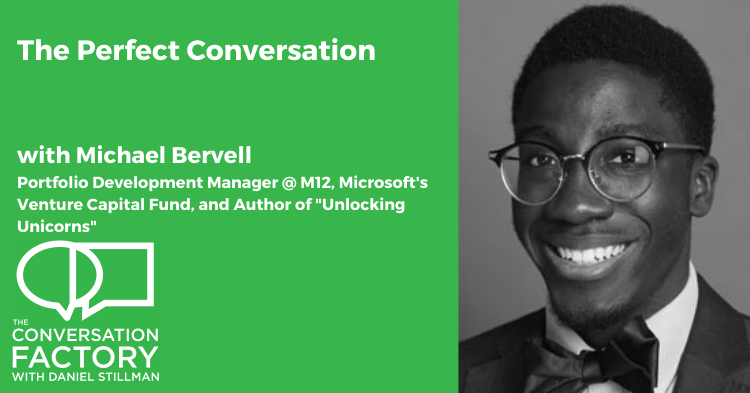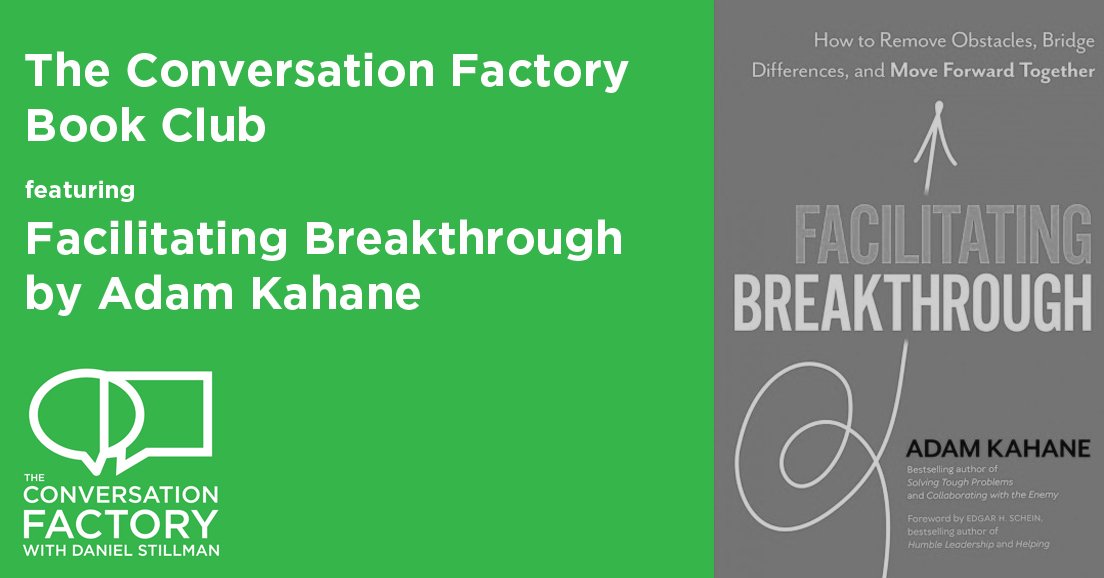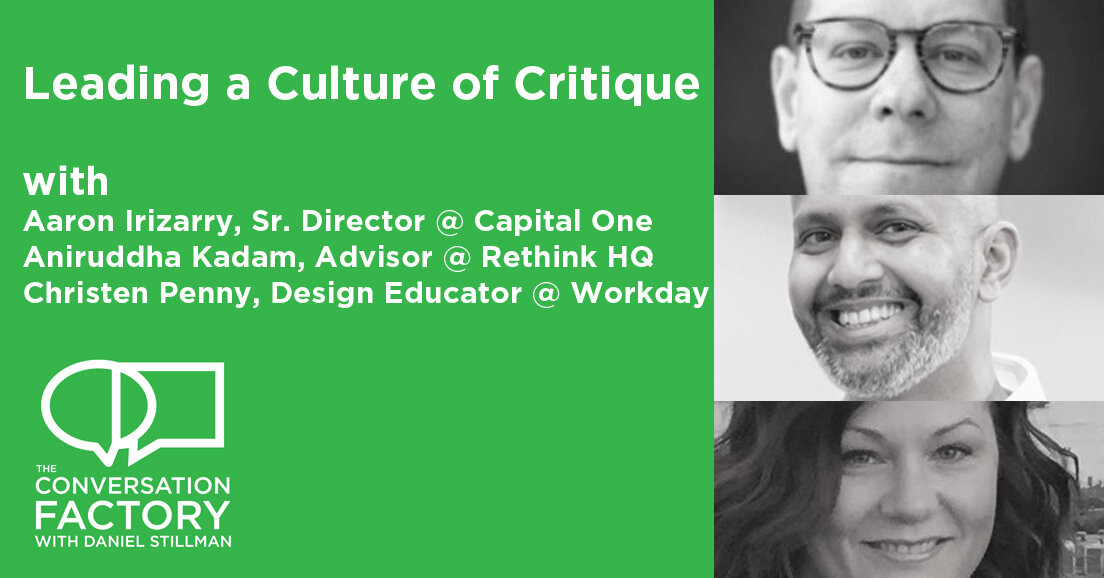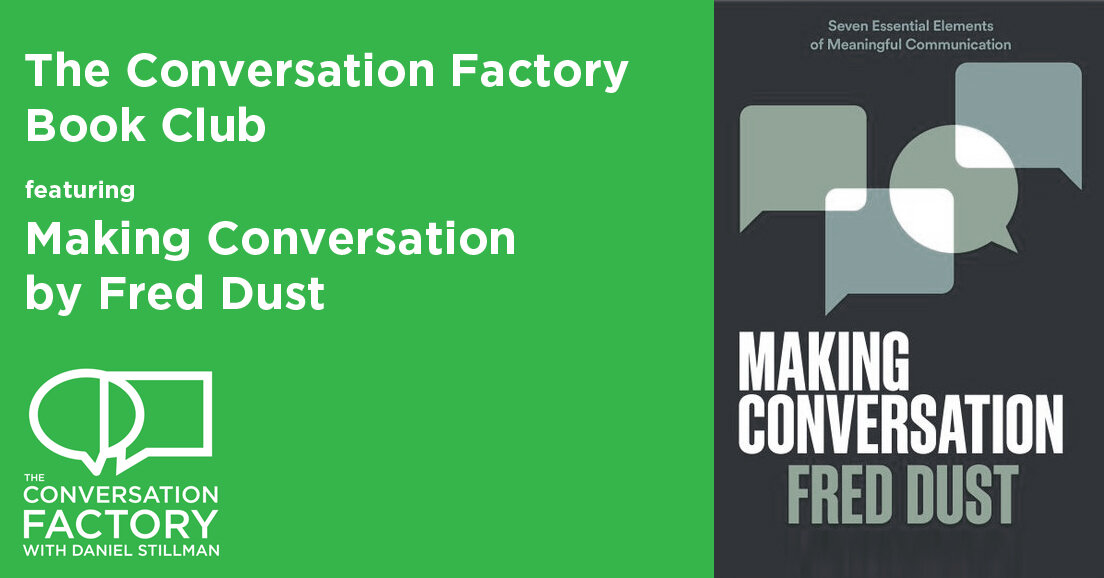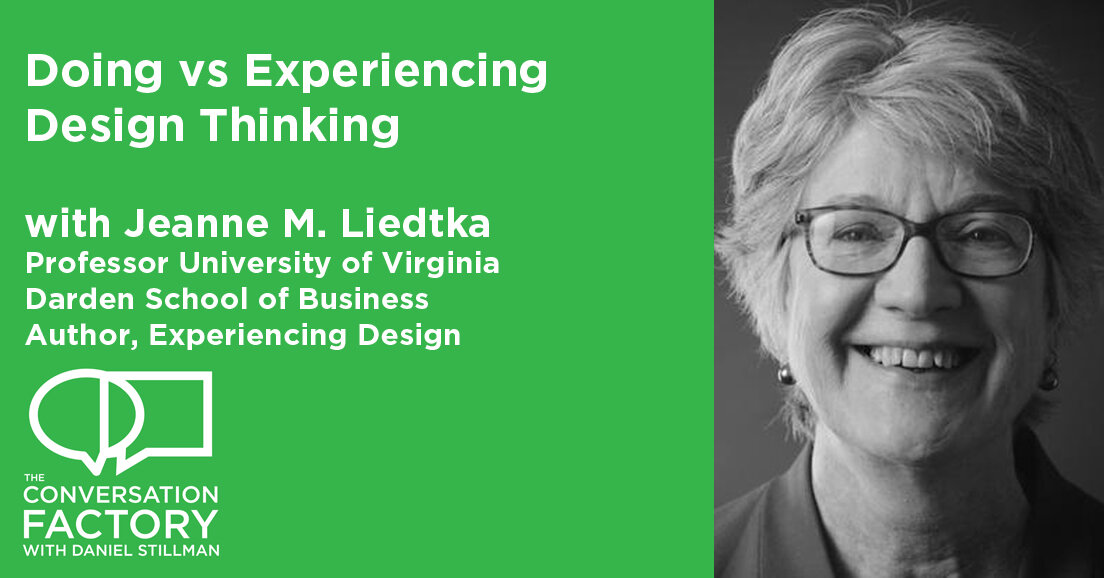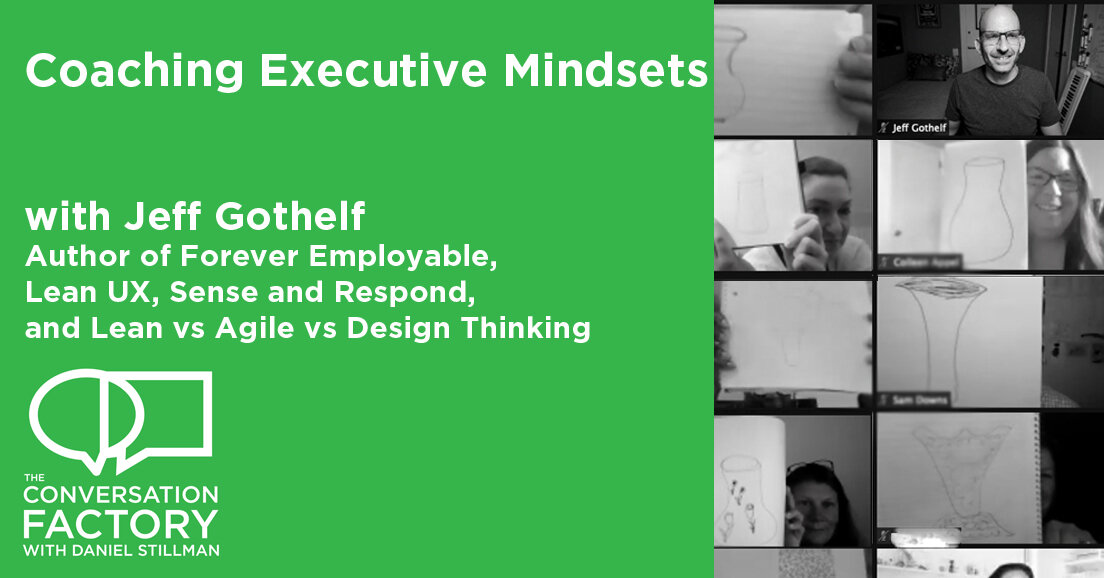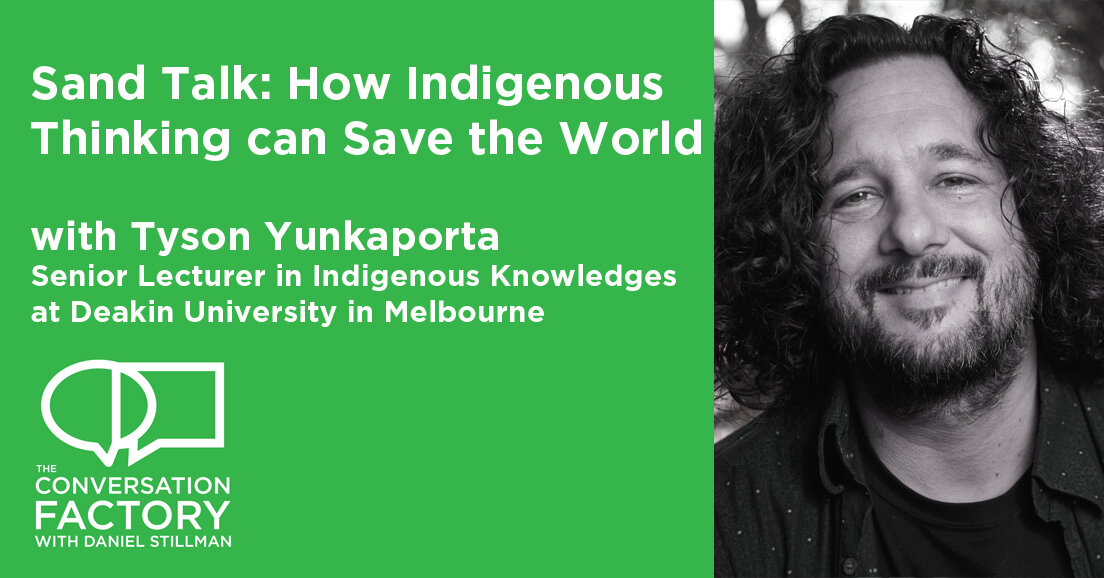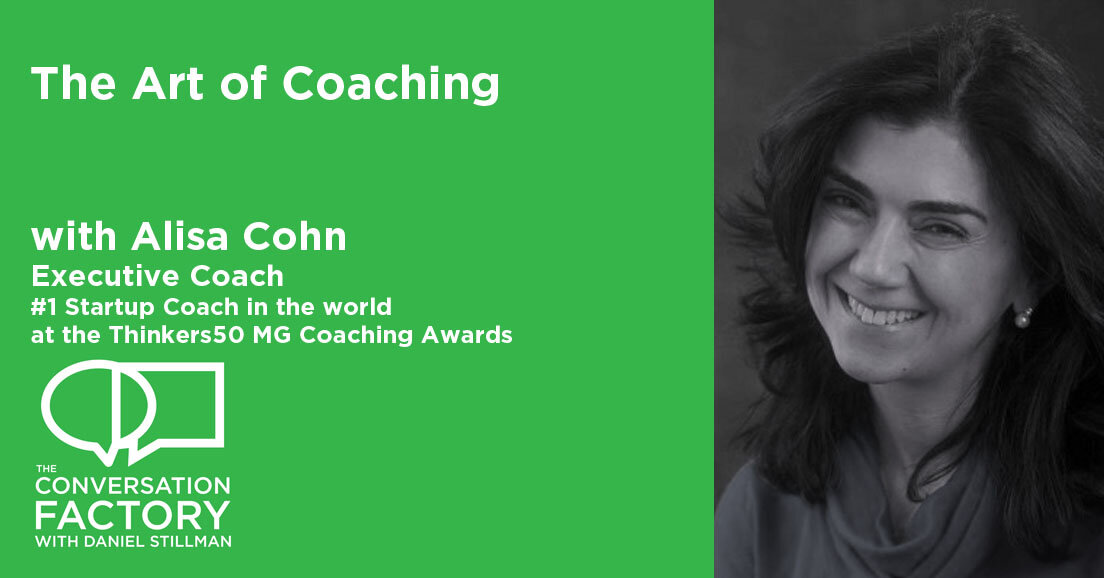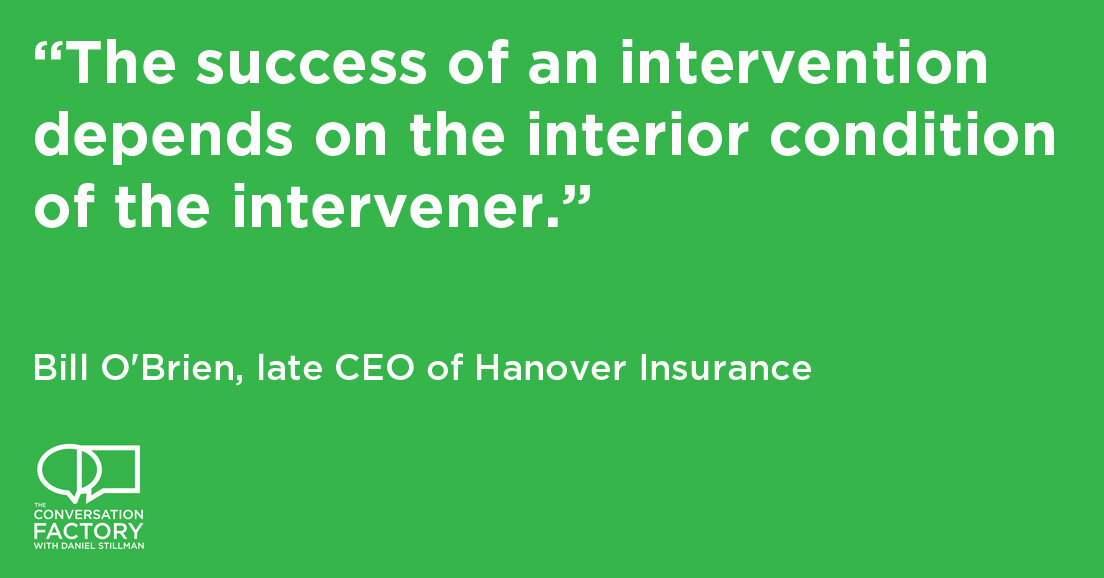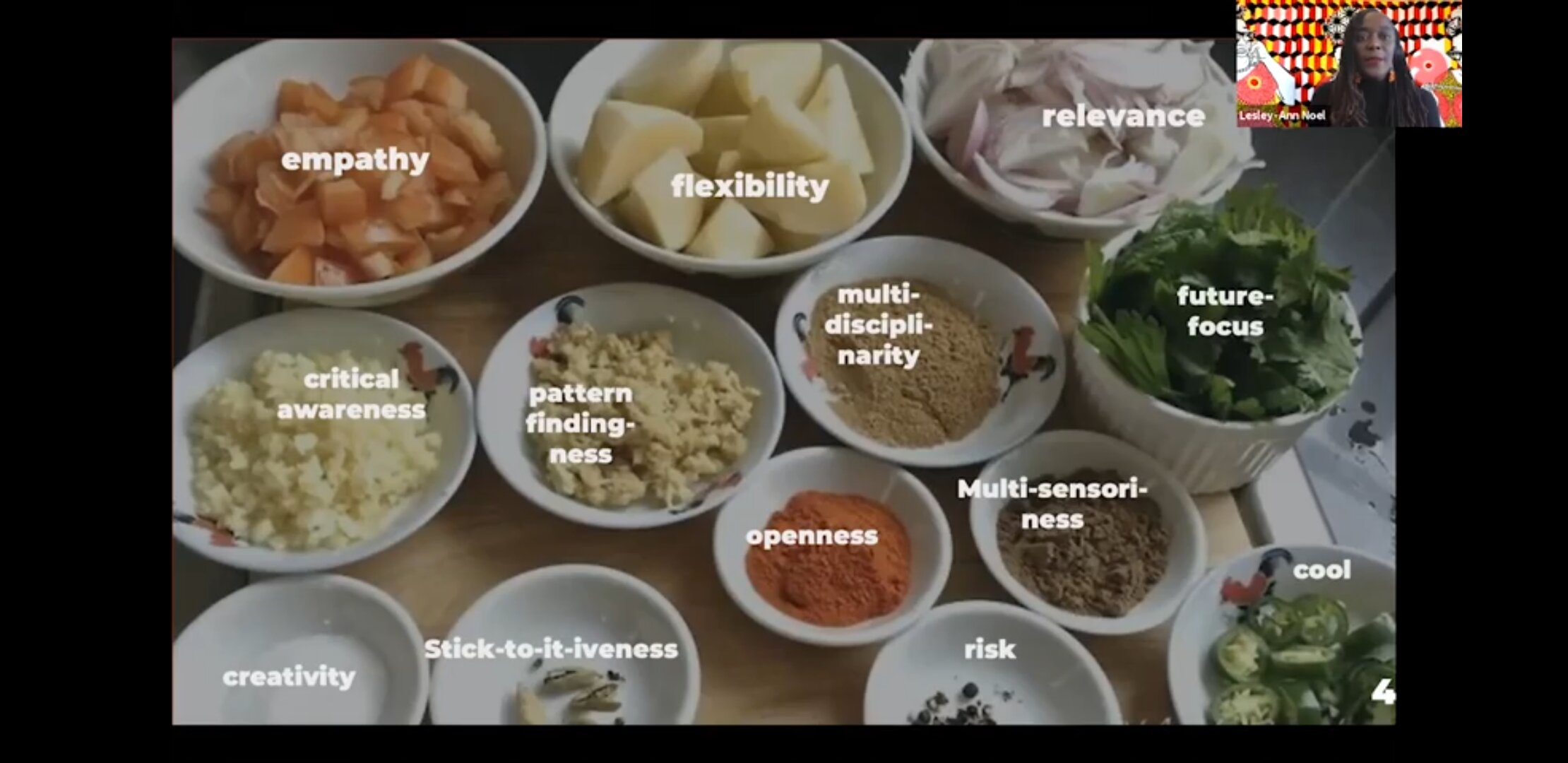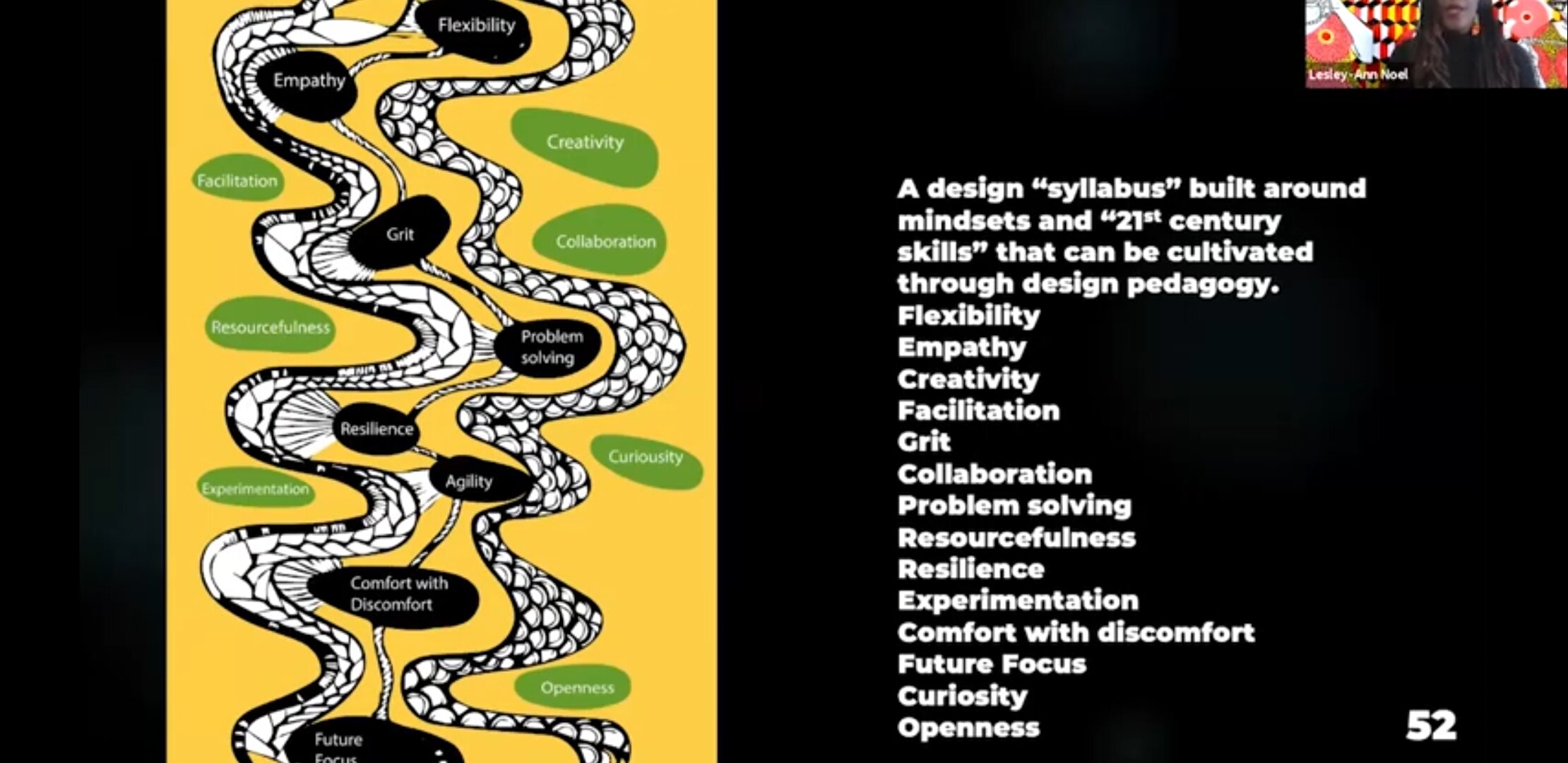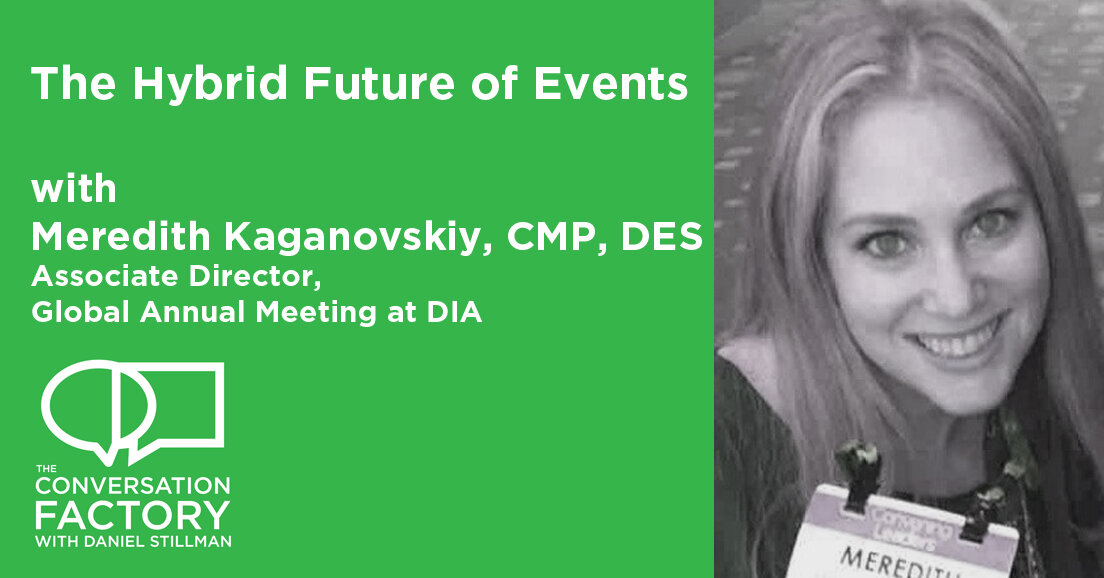What is a "perfect conversation"?
What about the "perfect" conversationalist?
I'm thrilled to share this discussion that Michael Bervell and I had around those questions and more. Michael is a Ghanaian-American angel-investor, entrepreneur, philanthropist, and philosopher. He currently serves as the youngest President of the Harvard Club of Seattle and works as a Portfolio Development Manager at M12, Microsoft’s Venture Capital Fund.
He's also the author of Unlocking Unicorns and the host of the blog "billion dollar startup ideas"
He's also a conversation design nerd, like me… and his insights into conversation design are not to be missed. We unpack some essential questions, like:
Understanding the types of Conversations with the “Concentric Circle” model of Conversations
The Importance of Self-Talk in Conversations
The Art of Noticing: What to “read” when you're reading a conversation.
Being an “authentic chameleon”: Balancing being adaptable in conversation with being authentic
The Power of non-questions and Questions with a period.
I hope you enjoy the conversation as much as I did!
Links, Quotes, Notes, and Resources
Unlocking Unicorns, by Michael Bervell
The TikTok Michael told Daniel to make
Minute 5:
Michael Bervell:
I was raised by my grandmother for a long time in my elementary school years, and my grandmother used to always tiptoe into my bedroom at nighttime. And she would tiptoe into my bedroom and take my teddy bears, because she would go to Ghana once a year and take these teddy bears and give them to kids in the hospitals, and the orphanages, and the schools. So, it was so sweet.
Daniel Stillman:
She stole your teddy bears.
Michael Bervell:
She stole my teddy bears but for a good cause. Obviously, I didn't see that good cause as a young child. But eventually when she passed away, we went to her funeral and saw all these kids at her funeral, kids under 10-years-old. And we're like, "Why is everyone here?" And they said, "Oh, well, this is our mom, too," in the sense that she had given them all teddy bears and helped them, and so they felt this kind of sense of loss when she died.
And so, in the communal kind of conversation aspect, what we wanted to do is to make her legacy live on. And the conversation that we started here in the States is asking people at local high schools and middle schools to donate their teddy bears so that on our next trip to Ghana, we could hand deliver them to these hospitals, orphanages and schools.
And so that was in 2007. Now about 14 years later, it's an annual thing that we do. We actually have a Hugs for Ghana Day. That's the name of the nonprofit in our local town, and we do this once a year and kind of have this almost kind of cross-cultural conversation where students from the U.S. will fly to Ghana and hand deliver these supplies to these Ghanaian schools, and hospitals and orphanages.
So, I think that was the first kind of conversation of meaning that I really had.
Minute 10:
So that's what self-talk, I think the core of that is to think, "If you have those 60,000 thoughts, try to grasp one and hold on to it." Right?
I think the metaphor can apply to a two-person conversation or a dyadic conversation as well, in the same sense that in a two-person conversation, there are about a hundred things that you could be saying at any one time. And, of course, people say active listening is the idea of not listening to figure out what you're going to say next, but instead listening to understand and respond to that, which I think is very similar to trying to latch on to one thought in self-talk.
Minute 12:
Daniel Stillman:
Which goes to the question of, what do you read when you're reading the conversation? What are you noticing? And I think the idea of being a chameleon is such an interesting one, so there's two layers I want to pull, because I've been playing with this idea, as well, of can I show up on purpose to serve the conversation? I think it's worth doing if you want it to become something more, more of itself, or to be able to bend it into another direction, but that requires you to show up in specific ways, intentionally, which means you have to notice what's going on in the conversation, like what are the signs and signals.
Michael Bervell:
Yeah, and it's not just in the conversation. It's also in the context of the conversation. Right? If we're having this conversation not as a podcast, it would probably be different than if it was a podcast.
And so the context outside of conversation also affects the conversation, and profoundly.
Minute 18:
Daniel Stillman:
So, this kind of goes towards... I have a stick note here around asking questions with a period, as in not interrogating people, and I'm wondering. This is where I think about the art of invitation, the ability to invite people into a modality or a process or a set of questions without it seeming abrupt, forceful or strange. And I think it seems like that's a challenge here.
Michael Bervell:
Yeah. I mean even what you just did now. You asked a perfect question without putting a question mark on it. The question that you're asking is, how do you overcome that challenge, and yet all you said was, "There is a challenge here." Right? And that opens up the next step of wanting to say, "How would one solve that challenge?"
And I think, obviously, if you go to every conversation and you always are asking, "So, how was I in that last conversation? Was it good?" I mean, you can probably think of all the funny jokes that similar to, that no one wants to really ask. And so I think one strategy that I have, even as, one, you could do it asynchronously, meaning you send out an email to all your friends. This is the extreme self-improvement method. And you say, "Hey, once a year, I send this out to all my friends. Give me feedback on how I converse." Right? And it's not really a question. It's more like an invitation to contribute to the bettering of Michael, the bettering of Daniel.
More About Michael
MICHAEL BERVELL is a Ghanaian-American angel-investor, entrepreneur, philanthropist, and philosopher. He currently serves as the youngest President of the Harvard Club of Seattle and works as a Portfolio Development Manager at M12, Microsoft’s Venture Capital Fund.
Bervell's blog BillionDollarStartupIdeas.com has been viewed by more than 750,000 people around the world. In 2007, he co-founded “Hugs for” an international, student-run non-profit organization with operations in 6 countries that has impacted over 300,000 youth. Because of this work, Bervell was awarded the National Caring Award in 2015, alongside Pope Francis and Dikembe Mutombo.
He received a Bachelor’s in philosophy from Harvard College and a Master’s in communication from the University of Washington. Find him at MichaelBervell.com.
Full Transcript
Daniel Stillman:
Michael, I am so glad that you made the time for this conversation. Honestly and truly, I'm so excited to have you on The Conversation Factory. You are a unique conversation designer in your own right, so thanks for making the time.
Michael Bervell:
Well, I really appreciate being on here. It's almost like you're finally on the podcast that you listen to, and that you've touched the moon. You know? That's kind of what it feels like a little bit.
Daniel Stillman:
You're very kind. Well, so, I mean how... I've been thinking about how to contextualize you and honestly, our relationship, because the way I think of it is like you're a younger person than I am. You're at sort of the beginning middle of your career. But I also feel like I've learned so much from you every time we've spoken. So even though you don't have an official reverse mentoring relationship, that's the way I think of it. After our last conversation, you were like, "You know what, Daniel? You should make a TikTok video." And I did, and it was really-
Michael Bervell:
Oh, amazing. I love that.
Daniel Stillman:
... So I was like, "I should take Michael's advice, because he's-"
Michael Bervell:
That's so cool.
Daniel Stillman:
"... smarter than me in so many ways." How do you describe yourself? What do you say it is? What would, the classic quote, what would you say you do around here? How do you describe yourself?
Michael Bervell:
And you know what's so funny is, I made my first website when I was in 9th grade, because I had an older brother. He was junior in high school, and so he was two years older than me. So, he made a website, and I was like, "Well, I should make a website, too." And on my website, my first iteration of it, it said, "Michael Bervell is an enigma." Which that first sentence has changed a couple times. Now it says, "Michael Bervell is a Ghanaian-American, angel-investor, entrepreneur and author." Which is a little different from an enigma.
Michael Bervell:
But when I think of myself, I think of all the people who came before me and how that shaped who I am. And so, I'm the child of two Ghanaian immigrants. I grew up living in the United States. I've been extremely fortunate and been able to go to amazing schools and meet amazing people and been able to give back in amazing ways. But I'm also someone who wants to try to take the success that I've had and to spread it around to people who don't have it. And so, I guess I'm an enigma but also trying to give back in some ways.
Daniel Stillman:
I think it was the short version, and I like the longer version, too. I feel like we originally connected around facilitation, right?
Michael Bervell:
Yeah.
Daniel Stillman:
And designing conversations. And maybe you can just contextualize a little bit of your heritage, your story in that world.
Michael Bervell:
Well, when we first met, I was doing research on how to have the perfect conversation. As I framed it, there were kind of these three parts to it. Every conversation starts with the self-talk that you have, almost the philosophy you talking to yourself. Then there's the two-person conversation, which is you talking to someone else. And then kind of what I call the N-person conversation, community conversations, conversations around a table, maybe even a conversation of a speaker to an audience. I guess we're doing that two-person conversation but with an audience listening in.
Michael Bervell:
But I lived in almost every single day growing up from birth until now always having family dinner with my family. And so, that was just a regular occurrence, is that at the end of the day, we would all sit down; we would pray, eat dinner together as a family at least for 30 minutes to an hour. Sometimes the TV was on, sometimes it wasn't. And from a young age, conversation, for me, was just normal. It was regular, and it was frequent.
Michael Bervell:
And I think whether intentionally or not, that frequency permeated into me, especially during COVID, when there wasn't as frequent of conversations. I couldn't get dinner every single night with my family. Or in college, I joined a dinner group where every single week, I would get dinner with 12 of my closest friends, and we'd invite a different professor to come in. I couldn't do that during COVID.
Michael Bervell:
And so, the fact that I had lacked that conversation, I think, is what spurred me to be interested in it. But I think that upbringing, kind of being around a fireplace, a very communal, it's very much a Ghanaian type of mentality that has definitely inspired me all the while.
Daniel Stillman:
I think that's something that I... So, I've noticed a couple things I want to loop around. One is, the end conversation. I feel like you had had some experience in your university years convening and facilitating gathering people for a purpose. Right?
Michael Bervell:
Yeah.
Daniel Stillman:
And facilitating and moderating that conversation.
Michael Bervell:
Yeah, and I was still being... And I think the first time I really facilitated the conversation that had meaning was in 6th grade, even before college, and I'll give you the quick story about that.
Michael Bervell:
I was raised by my grandmother for a long time in my elementary school years, and my grandmother used to always tiptoe into my bedroom at nighttime. And she would tiptoe into my bedroom and take my teddy bears, because she would go to Ghana once a year and take these teddy bears and give them to kids in the hospitals, and the orphanages, and the schools. So, it was so sweet.
Daniel Stillman:
She stole your teddy bears.
Michael Bervell:
She stole my teddy bears but for a good cause. Obviously, I didn't see that good cause as a young child. But eventually when she passed away, we went to her funeral and saw all these kids at her funeral, kids under 10-years-old. And we're like, "Why is everyone here?" And they said, "Oh, well, this is our mom, too," in the sense that she had given them all teddy bears and helped them, and so they felt this kind of sense of loss when she died.
Michael Bervell:
And so, in the communal kind of conversation aspect, what we wanted to do is to make her legacy live on. And the conversation that we started here in the States is asking people at local high schools and middle schools to donate their teddy bears so that on our next trip to Ghana, we could hand deliver them to these hospitals, orphanages and schools.
Michael Bervell:
And so that was in 2007. Now about 14 years later, it's an annual thing that we do. We actually have a Hugs for Ghana Day. That's the name of the nonprofit in our local town, and we do this once a year and kind of have this almost kind of cross-cultural conversation where students from the U.S. will fly to Ghana and hand deliver these supplies to these Ghanaian schools, and hospitals and orphanages.
Michael Bervell:
So, I think that was the first kind of conversation of meaning that I really had. But to your question, in college, I continued on having conversations, not just for meaning in the broader sense of giving back and impacting the world, but also in the more small sense of how to actually reflect on who you're becoming and who you want to be, almost the self-talk aspect, and that conversation was...
Michael Bervell:
I studied philosophy in college, so I'd have conversations all that time about philosophy, but we'd bring in these small dinner groups and bring in one professor to this group every single week. And that really helped me to spur really fascinating conversations. I talked with Ellen Langer, who was the first tenured female faculty member in the psychology department at Harvard. She's kind of called the mother of mindfulness. And that was one of the most memorable conversations I ever had.
Michael Bervell:
There are other conversations I had with someone named Gevvie Stone. She was an Olympic silver medalist. She came to our dinner group and told us, "How do you actually have the grit and perseverance to win a medal at the Olympics?" And she was a rower on the heavyweight women's row team. And so it was just super fascinating to meet these amazing people through conversation. But, whether conversation for meaning or conversation for self-enlightenment, I kind of [inaudible 00:07:39] it in a bunch of different ways.
Daniel Stillman:
I love the metaphor the visual of these concentric circles of conversation. I think very similarly with self-talk as this really important core that drives all of the other ones. And I'm wondering, the reflection has to do with sort of managing your self-talk.
Michael Bervell:
Yeah.
Daniel Stillman:
And I guess I'm wondering, what do you feel like are the principles that are the most similar across those spheres, from N to the one? What do you feel like is the same, and what's very, very different about those three conversation spheres, those concentric circles?
Michael Bervell:
I think the most similar thing that I would say is, with self-talk. Right? Let's start with the most central circle. It's the idea that in any given day, you're probably going to have I think 60,000 thoughts is the study for that thought. Right? I mean, you're not going to say 60,000 things.
Daniel Stillman:
No.
Michael Bervell:
And I wonder if people can say 60,000 words, but you have all these thoughts. And half of self-talk is even just deciding what will surface. Right?
Daniel Stillman:
Mm-hmm (affirmative).
Michael Bervell:
It's almost like the very Buddhist kind of philosophy of self-enlightenment of thinking, reflecting and trying to empty your mind, and that in and of itself is one of the hardest things to do. Right?
Daniel Stillman:
Yeah. That to me is, there's a dot. There's a dot in the middle of the concentric circle that is the cessation.
Michael Bervell:
Exactly.
Daniel Stillman:
And that's really hard and rare.
Michael Bervell:
Super hard to get down to that. Right? So, the thinking about nothingness, or being very mindful about thinking about one thing.
Daniel Stillman:
Yeah.
Michael Bervell:
And the way that I personally practice that is, I think I was listening to a Thích Nhất Hạnh audiobook. And he said, "Think about breathing." Right? "If I were to tell you think about your breath going in and your breath going out, you literally can't think about anything else other than your breathing."
Daniel Stillman:
Yeah.
Michael Bervell:
Right? You can't multitask breathing and XYZ.
Daniel Stillman:
Yes.
Michael Bervell:
And yet, it's always happening. Right?
Daniel Stillman:
Yes.
Michael Bervell:
Under this. So that's what self-talk, I think the core of that is to think, "If you have those 60,000 thoughts, try to grasp one and hold on to it." Right?
Michael Bervell:
I think the metaphor can apply to a two-person conversation or a dyadic conversation as well, in the same sense that in a two-person conversation, there are about a hundred things that you could be saying at any one time. And, of course, people say active listening is the idea of not listening to figure out what you're going to say next, but instead listening to understand and respond to that, which I think is very similar to trying to latch on to one thought in self-talk.
Daniel Stillman:
Yeah.
Michael Bervell:
Right? And it gives you, in effect, higher and higher and higher the number of possible conversations, you know, combinatorics is infinitely higher. 50,000 thoughts for one, there's maybe 120,000 thoughts for two, and then once you get to three, it's in the millions already, of potential things that people could say, do, whatever. And so I think that's the one core that kind of strings through is the level of possibility.
Daniel Stillman:
Yes.
Michael Bervell:
And so, in my research of having the perfect conversation, part of the question is, which possibility do you take-
Daniel Stillman:
Yes.
Michael Bervell:
... to make the conversation the best.
Daniel Stillman:
Of infinite possibilities.
Michael Bervell:
Of infinite possibilities, right?
Daniel Stillman:
Yeah.
Michael Bervell:
And with self-talk in my experiment, there's only 60,000 possibilities. In theory, you could try all of them out. With two people, even when you talk to your friend every single day for 10 years, you'll probably go through every possible possibility of your conversation. But as soon as you bring the third person, it becomes almost incomprehensible.
Daniel Stillman:
Yeah. It's the three-body problem in physics is-
Michael Bervell:
Exactly.
Daniel Stillman:
... very, very complex. Do you feel like you have a sketch or a view of what that perfect conversation is now?
Michael Bervell:
Yeah. My argument in how to have a perfect conversation is that I think the perfect conversationalist is a chameleon in the sense that they're the type of person who can mold to their environment. And so the hypothesis that I built is, okay, everyone has their own self-talk, everyone will probably talk to themselves differently. It seems like it's not too hard to kind of buy into the idea.
Michael Bervell:
If everyone talks to themselves differently, everyone's probably going to talk to other people differently. That's something that's also pretty basic. And if everyone talks to other people differently, then you should be able to tag and say, "This is your conversation type, or the habit of conversation that you tend to have."
Daniel Stillman:
Yes.
Michael Bervell:
And so my question that I tried to answer, and the eventual answer I came to is, so how do you as a conversationalist talk with someone once you know what their conversation type is? Or at least knowing that everyone has a different conversation type, how do you adapt your style of conversation to that person? Right? And my initial research was like, okay, well if you're talking with a chatty Cindy, then you should try to be a stoic Sam, because opposites are the best way to go about things.
Michael Bervell:
But then if a stoic Sam is talking to another stoic Sam, then that won't be a great conversation. It's be fairly hard. And so it almost seems like one of them would have to change, which is how I got to the lever of the perfect conversationalist is always adapting and always changing based on how they're reading the situation and the other person that they're talking to.
Daniel Stillman:
Right. Which goes to the question of, what do you read when you're reading the conversation? What are you noticing? And I think the idea of being a chameleon is such an interesting one, so there's two layers I want to pull, because I've been playing with this idea, as well, of can I show up on purpose to serve the conversation? I think it's worth doing if you want it to become something more, more of itself, or to be able to bend it into another direction, but that requires you to show up in specific ways, intentionally, which means you have to notice what's going on in the conversation, like what are the signs and signals.
Michael Bervell:
Yeah, and it's not just in the conversation. It's also in the context of the conversation. Right? If we're having this conversation not as a podcast, it would probably be different than if it was a podcast.
Daniel Stillman:
Totally.
Michael Bervell:
And so the context outside of conversation also affects the conversation, and profoundly.
Daniel Stillman:
Yeah, this makes it, this is slightly more. I mean, our conversations are similar to this, but they're a little more. This makes it a little bit more theatrical, and if there was people watching us, it's also yet even more different-
Michael Bervell:
Exactly.
Daniel Stillman:
... because that raises the stakes.
Michael Bervell:
Yeah.
Daniel Stillman:
I think the idea of being a chameleon, I'm wondering if you ever put that intention with the idea of being authentic, like how do you be an authentic chameleon?
Michael Bervell:
It's so funny. I was on a hike in Lake Tahoe in July, and I was sharing with someone my research. And so I shared this whole hypothesis, and he said, "But that's inauthentic. If you're a chameleon, then are you ever truly yourself?"
Daniel Stillman:
Yes.
Michael Bervell:
And my response was, "Well, what if yourself is a chameleon?" Right?
Daniel Stillman:
Yeah.
Michael Bervell:
What if your most natural state, supposing that I were able to design these tests perfectly so that you could do all these questions and understand what type of person you are, and across all dynamics, you were pretty much a circle, or you're equal or whatever it might be. Then in that sense, your natural state is to be a chameleon. Right? And in that sense then yeah, the perfect conversation comes quote unquote, "naturally" to you, whatever that might mean.
Daniel Stillman:
I guess the way I sometimes think about it is just having range. Just like a soprano or an alto has a different range, and there's some people who are double threats, or triple threats in that they sing, dance and act. They've got range. They can do a high part and a low part. And I don't think there's anything wrong with not having range if you're getting what you want out of life. But-
Michael Bervell:
Yeah, and it's interesting. It's almost like getting an EGOT, right? The Emmy, Grammy, Oscar, Tony.
Daniel Stillman:
... Oscar, Tony, yeah.
Michael Bervell:
The EGOT of conversation, is that what one should strive for, or should we just strive to be an egg instead?
Daniel Stillman:
Yeah, right. And if you're getting what you need out of life, that's fine.
Michael Bervell:
Exactly.
Daniel Stillman:
But I think, generally, people look towards... Well, this is what's interesting is, I think often people look for additional techniques to try and get more of what they want. And I feel like you're saying something that I think sometimes, which is, you just have to notice what the need is and potentially be able to serve the need of the conversation.
Michael Bervell:
Yeah. And the way I phrase that in my research is, every conversation has a goal, and as a conversationalist, you should understand what the goal is in order to know how to adapt to the conversation, and whether the goal is specific to the type of person that it is. Maybe the goal is, "I want to be liked after this conversation," so you must adapt to who they are in order to be liked by them.
Michael Bervell:
But if the goal is, we need to make our next quarter's earnings and develop a strategy to do that, maybe a chameleon strategy where you're just trying to be liked isn't necessarily the right strategy. But maybe a chameleon, I think, is calmness in understanding the goal and adapting your methodology to achieve that goal.
Daniel Stillman:
Yes. Where do you feel, I mean in the research that you've done, where do you feel like are the biggest opportunity spaces for people to mold conversations to serve them better?
Michael Bervell:
I think there's this interesting phenomenon with what I call delivered conversation and received conversation, meaning the 15 words that I say to you, I have a perceived meaning of it, and you have a very different perceived meaning of it.
Daniel Stillman:
Yeah.
Michael Bervell:
I think the best example would be Gertrude Stein. She's a Cubist writer. People say she lived at the same time as Picasso, so on and so forth. She has this great piece called A Portrait of Picasso, where she essentially writes this Cubist poetry about if she were to paint Picasso in words, and there's a lot of repetition in this poetry, but as you read one sentence, and you put it into juxtaposition with another sentence, the sentence changes meaning, even if it's same exact sentence.
Michael Bervell:
So one of the phrases that she has is, "A rose is a rose, is a rose, is a rose, is a rose." Right? By the fifth or sixth, "Is a rose," it's kind of gibberish, but the first time-
Daniel Stillman:
Yeah.
Michael Bervell:
... it affects. So, I'm using that as a metaphor and kind of a simile to this whole delivered and received conversation aspect. I could think I'm saying one thing, but it could be perceived as gibberish, and I think that's one area that people could try a bit more intentionally to understand. Whether it's at the end of your conversation with your partner, they'll be like, "Well, what did you hear me say?" And have them repeat it to you, because it'll be colored by their, "Rose is a rose, is a rose," tinted glasses.
Daniel Stillman:
Reverse-active listening.
Michael Bervell:
Exactly, yeah.
Daniel Stillman:
I think sometimes what comes up, and I always quote my mom on this, where she's like, "I don't want to be designing my conversations all the time, Daniel." And I say, "That's a choice."
Michael Bervell:
Yeah.
Daniel Stillman:
So, for some people, that, "Tell me what you heard," could seem like a lack of trust, or overwrought. Right?
Michael Bervell:
Mm-hmm (affirmative).
Daniel Stillman:
So, this kind of goes towards... I have a sticky note here around asking questions with a period, as in not interrogating people, and I'm wondering. This is where I think about the art of invitation, the ability to invite people into a modality or a process or a set of questions without it seeming abrupt, forceful or strange. And I think it seems like that's a challenge here.
Michael Bervell:
Yeah. I mean even what you just did now. You asked a perfect question without putting a question mark on it. The question that you're asking is, how do you overcome that challenge, and yet all you said was, "There is a challenge here." Right? And that opens up the next step of wanting to say, "How would one solve that challenge?"
Michael Bervell:
And I think, obviously, if you go to every conversation and you always are asking, "So, how was I in that last conversation? Was it good?" I mean, you can probably think of all the funny jokes that similar to, that no one wants to really ask. And so I think one strategy that I have, even as, one, you could do it asynchronously, meaning you send out an email to all your friends. This is the extreme self-improvement method. And you say, "Hey, once a year, I send this out to all my friends. Give me feedback on how I converse." Right? And it's not really a question. It's more like an invitation to contribute to the bettering of Michael, the bettering of Daniel.
Michael Bervell:
But the second method, which is in conversation, would be something almost like self-critical. And I've done this a couple times where I'll be like, "Oh you know, when we were at this last party, I said, this, that thing to the other person. I hope they didn't think it was weird."
Daniel Stillman:
Mm-hmm (affirmative).
Michael Bervell:
And my partner would be like, "Oh yeah, that was weird, and here's why I wouldn't say it again," or like, "Oh no, I didn't think it was weird, for X, Y, Z reasons." Right?
Daniel Stillman:
Yeah.
Michael Bervell:
And so, almost that self-doubt, I guess, is a way of asking a question with a period.
Daniel Stillman:
Yeah. Is there more to say about asking a question with a period?
Michael Bervell:
Yeah. I think when people ask questions, they obviously do it with a question mark. Right?
Daniel Stillman:
Mm-hmm (affirmative).
Michael Bervell:
"How are you doing today? How was your Thanksgiving? What did you do last week?"
Daniel Stillman:
Mm-hmm (affirmative).
Michael Bervell:
Versus, asking a question with a period could be something like, "Oh, I saw you carve a turkey on..." Oh, I guess that's a question mark.
Daniel Stillman:
Mm-hmm (affirmative).
Michael Bervell:
"Your turkey on Instagram looks so tasty." Right? That invites you to tell a story about the turkey that they had carved.
Daniel Stillman:
Yeah.
Michael Bervell:
Right? Or even like, "It's been so long since I've seen you, your hair grew longer." I don't know. That would be a bad one. You can imagine how you can get people to tell stories or to share things about themselves by not asking them directly, but in almost leading breadcrumbs that incentivizes them to tell a story-
Daniel Stillman:
Yes.
Michael Bervell:
... or to tell more about themselves.
Daniel Stillman:
So, there's an example that comes to mind, which kind of maybe leads into another sticky note I have for around Zoom networking. One of the things that I do often, and if anybody gets on a call with me, you'll probably see me do this, which is notice something about somebody's background. Right?
Michael Bervell:
Exactly.
Daniel Stillman:
I'll be like, "Hey, I love your sweater," or, "That's an awesome painting," or, "Hey, it looks sunny there today." Those are... And then it's just instead of saying, "How's the weather?" it's an opening for someone to go through-
Michael Bervell:
Exactly.
Daniel Stillman:
... but they don't have to.
Michael Bervell:
I think that's an even better example of the asking questions with a period. And I think Zoom makes it a lot easier to do this.
Daniel Stillman:
Yeah.
Michael Bervell:
To the Zoom networking point, I almost always... Maybe this is genuine; maybe it's not genuine, so secrets for The Conversation Factory audience only. I almost always have research about the other person open on my laptop when I'm talking to them, whether it's a LinkedIn profile; or if they had a recent media article published about them, I'll have that open, because I actually do think it helps to develop a bit deeper of a friendship and a relationship if you are not asking super basic questions that they've told 100 people about, but you're asking them questions that they've never heard before.
Daniel Stillman:
Yes.
Michael Bervell:
Or at the very least, you are looking at something that they've posted and taken the time to create already and are showing that you've seen it. And I think that's a big-
Daniel Stillman:
Is the three screen technique that you were talking about?
Michael Bervell:
... Exactly.
Daniel Stillman:
So, wait, what are the three screens? One is definitely having something else where you're looking at their LinkedIn bio just so you can hold their story.
Michael Bervell:
Yeah. One is definitely the LinkedIn bio. One is, of course, the screen with the person on it, and I think the third is even the screen of, "What's the goal of the conversation? What do you want to get out of this?" Right? Which is, whenever you see my Calendly, or if I send you a calendar invite or anything, I have a super simple question that says, In 10 or 20 words, describe what you want to get out of this meeting."
Daniel Stillman:
Yes.
Michael Bervell:
And even that is quote unquote "an agenda" or a goal that then with the other screens, you can adapt. So, maybe it's an anticlimactic third screen, but it really is just the goal of what you hope to actually achieve in the time you have.
Daniel Stillman:
Yeah. I feel like you are really good at, and I think it's worth exploring, especially in the age of COVID. I feel like the conversational density of our lives has decreased in some ways in that, in other ways it's just completely transformed. It's totally different. But I think about the sort of events and conferences, the sidebar conversations that we used to have, and I get the sense that you have a really methodical approach to designing your conversations around networking. Do you have a sketch of your perfect design for your networking approach? Because I noticed, for example, your Calendly link. I don't think many people... There's some people who might not go to that step of, "Here's my 30-minute Calendly link." You have a lot of availability in all sorts of strange hours to make it possible for you to connect with people.
Michael Bervell:
Yeah. Yeah. I mean, I have... I guess I have two virtual tactics and one non virtual tactic. The first virtual tactic is that once a quarter, I'll do what I call a social week. I think Bill Gates does a think week where he disconnects and like reads a bunch of books and whatever. I do a social week, where for one week, all I'm doing is chatting with people and socializing. And so, I'll have calendar blocks from maybe 8:00 AM to 8:00 PM with like a one hour break for lunch, and I'll just have 30 minute conversations. I think I shortened it to 20 minutes so I can do more conversations for five days.
Daniel Stillman:
Wow.
Michael Bervell:
I'm pretty sure there was a time that you caught me at the end of one of my social weeks.
Daniel Stillman:
Yeah.
Michael Bervell:
I was absolutely exhausted, almost because I realized in doing social week, how many of our conversations are redundant, and so it almost became a practice to be like, "How can I summarize my life in the last three months in two minutes or less-"
Daniel Stillman:
Right, and get to something else.
Michael Bervell:
"... so we can get into the more meat of the conversation?"
Daniel Stillman:
Yeah.
Michael Bervell:
Because I've just said it, by Thursday, I've said it over 60 times to 60 different people.
Daniel Stillman:
That's very interesting.
Michael Bervell:
So, social week is one of the virtual networking tips that I think has been really, really helpful in helping me to develop relationships that are new, but also cement existing relationships. When was the last time you called your best friend out of the blue? Maybe not that frequently, at least social week makes me do it once every three months.
Daniel Stillman:
Wow.
Michael Bervell:
The second virtual tactic on the whole Calendly link aspect is, I like to give people fodder for what they can ask me about or talk to me about. So, on my calendar link when they schedule time with me I have, these are the places I've traveled to, these are the board games that I've played, these are the books I've read. And, I like investing, so these are the companies or cryptocurrencies or whatever that I've invested in, in the last three months; and people can talk to me about that.
Michael Bervell:
The funny thing, and, of course, this is all anecdotal so maybe there's some type of study that could back this up, but the funny thing is, I feel like out of every 25 or 30 people I talk to, only two or three actually reference this 200-word thing that I've sent to them, essentially, about this is all the stuff that I'm thinking about lately. And so it's interesting, given all this information, why are people not using it to have quote unquote "better conversations"?
Daniel Stillman:
That is interesting, because I remember reading that and I was like, "Oh, that is so interesting and thorough and helpful, to put it in context, to put the conversation in context." It is interesting that very few people actually take use of the affordance that you are affording them.
Michael Bervell:
Yeah. Because I know actually, when we chatted last, you actually brought up one of the things. You were like, "Oh, I saw that you went here. How was it? I was there this many months ago."
Daniel Stillman:
Yeah.
Michael Bervell:
I think that's very rare. Right? And so, a quick takeaway for your audience is, before you meet an old friends, look at their Facebook, look at the last three posts and choose one to bring up.
Daniel Stillman:
Yeah.
Michael Bervell:
Right? Seems so easy, and yet I'm almost guaranteed 95% of people don't do it.
Daniel Stillman:
Yeah. Yeah. Well, I'm glad game recognized game in this context, Michael. I definitely appreciate, and I was like, "Yeah, this is..." And this is one of the reasons why I thought it would be so interesting to talk to you about some of this stuff.
Daniel Stillman:
I want to maybe dissect, if I may transition, to some of the other conversations in your work and how you designed some of those, because I know you work in VC. It's a world not everyone is really familiar with. I was just reading some articles about an old high school buddy of mine who works in the VC world. He was talking about transparency and allowing people to shop deals around. And I was just really interested in the different ways in which the venture conversation is designed, and ways in which you feel like it could be more optimally designed.
Michael Bervell:
Yeah, definitely. I'll answer that question, but quickly to roadmap one step back. I think I promised your listeners three tips, two virtual and one physical.
Daniel Stillman:
Oh yeah, okay, good.
Michael Bervell:
And I think it's a [crosstalk 00:28:40].
Daniel Stillman:
Oh, good man. Yeah, yeah, let's loop back around and we'll-
Michael Bervell:
And the one physical tip, which, and then I'll come back to that question. But the one physical tip is, I learned when I was a sophomore in college going through Harvard's punch process, which as you know, they have these things called final clubs. They're kind of like fraternities much harder. I guess, harder to get into. I'm not really sure if it's more hard or less hard, but you go to these events, and it's 200 punches, young sophomores and 10 members. And you have to somehow impress these 10 members to get them to move you to the next round, and you do this for four or five rounds before finally getting in.
Michael Bervell:
And my tip that I had for the punch process, or the lesson that I learned was, if you go meet someone, they're really going to remember two or maybe three things about you, and so, go into theses conversations having your two or three things close to your heart and knowing what you want to share, like, "What is the goal of who Michael is?" by the end of this conversation. And having those top-of-mind is, I think, super helpful, whether you're at a conference or going through a punch process or anything else.
Daniel Stillman:
Yeah. I mean, that's sort of like knowing the purpose, but knowing what you want people to come out of it with.
Michael Bervell:
Exactly. So then anyways to your question on VC, venture capital conversations, I think VC is just a fascinating industry. For the people who don't know about venture capital, essentially, people come to you. They ask rudely, and then you say yes or no, and that's your job. If you've watched Shark Tank, doing that every day is the job of quite a few people in the world.
Michael Bervell:
It's interesting, because there's kind of two parts to venture capital. One is everything that's deal flow, inbound. And, of course, the second is investing, outbound. And in the inbound, you have to be able to get a lot of inbound, and have a lot of conversations to vet. And in the outbound, you have to be able to convince people that they should take your money verus someone else's money, that your dollar is more valuable for some whole host of reasons.
Michael Bervell:
And so on the inbound conversations, obviously, you're talking with founders, you're talking with other investors. You're talking with people who have built companies and failed, and try to understand why, doing diligence, talking to customers. But what I find most interesting is the investor-to-investor relationship maintenance, because if you have really good relationships with other investors, then even if they pass on a really good deal, they'll send it to you to look at. And so have of venture capital, I mean maybe more than half, maybe less than half, a portion of venture capital is relationship maintenance for the purpose of deal flow. I think that's a super interesting part to venture capital that is often overlooked-
Daniel Stillman:
Yeah, because I would think that maybe people would-
Michael Bervell:
... what you don't hear of.
Daniel Stillman:
... think that competitors are keeping competitors at an arm's length versus having an authentic relationship with them.
Michael Bervell:
Yeah, and I think in the longterm, too, when you eventually go outbound with your money and invent in a company and join the board, they're going to raise more money in the future. Ideally, you're not the last time they raise money. Eventually, they'll raise a Series B, C, D, maybe they'll IPO. All of those processes take even more relationships, and so you can't burn a bridge on one deal, because then it burns the bridge for the next 50 deals that you want to do. And so it's almost like relationship maintenance in the long term has a higher effect. Even if you think, "Oh, this deal, this person might take the deal from me."
Daniel Stillman:
Yes. I would almost put it in, some people think about a conversation beginning and ending. Like one phone call, it starts and it ends. But in the way that you are keeping the conversation going that your grandmother started, it's a potentially infinite conversation, where you just don't know who's going to be funding in the third round, and maintaining that relationship is part of taking a longer view to that dialogue.
Michael Bervell:
I almost call it, and this goes back to the conversational layers. Right?
Daniel Stillman:
Yeah.
Michael Bervell:
If you add up all these layers, eventually it becomes like kind of a conversation onion. And that's another term from my research, is a conversation onion. The fun part about the conversation onion metaphor is, let's say on layer three you have a rocky part of the relationship that you never discuss, and you go out to layer 10 or 11 or 13, that rock is still going to affect the layers way far out. And to cut into the onion might require a couple tears, but eventually will lead to a good dish at the end, or a better relationship at the end. And so, every relationship is always additive, honestly, maybe even multiplicative in this nature, rather than just isolated events.
Daniel Stillman:
I mean, I think only if you have that mindset.
Michael Bervell:
Correct, yeah. Well, I think even if you don't, almost unintentionally you'll have that, you'll be thinking that, whether you know it or not. I guess my hunch is that's human nature. When I see you now I think, "What happened the last time I saw him and the five or six times after?"
Michael Bervell:
And I think Maya Angelou has this great quote that, "You may forget what someone did for you, but you'll never forget how they made you feel." And I think that's, the feeling of conversation is almost more important than the content itself, especially in venture when you're sharing the high-stake deals and it could make or lose someone millions of dollars. It's all about reputation at that point, which reputation is just a nice word for, "How does this person make me feel?"
Daniel Stillman:
Yeah. Is there anything else you think about when you're designing those conversations in the context of the work that you do?
Michael Bervell:
I think we've in this discussion so far, I've assumed that we've gotten the conversation. But there's also a bunch of work beforehand of deciding who to converse with, and also whether or not to take an inbound conversation. And I think as a venture capitalist, probably my hardest job so far has been when I tell people that our conversation is ending, which we refer to as passing on the deal.
Michael Bervell:
You talk with them to or three times and you're like, "The team doesn't find it interesting. We're going to pass." How do you do that in a graceful way? And how do you end a conversation?
Daniel Stillman:
How do you?
Michael Bervell:
I wish I had better tips here. I haven't done much thinking or research on it yet, so I don't have any silver bullets. I'm still in the learning phase myself.
Daniel Stillman:
We don't have the perfect conversation yet for that one.
Michael Bervell:
Yeah. Or how to end the conversation perfectly.
Daniel Stillman:
Yes.
Michael Bervell:
Yeah.
Daniel Stillman:
It's so interesting, what's coming to mind, I've been obsessing over it. Have you watched the movie Moneyball?
Michael Bervell:
Yeah, I have, yeah.
Daniel Stillman:
So, there's a whole series of clips I was watching on YouTube, and it's an amazing microcosm of conversations about how decisions get made. And there's a scene where Billy Beane, i.e. Brad Pitt, is teaching Jonah Hill, i.e. Pete Brand, I guess, how to fire people, and it was so... He was like, "Just tell him."
Daniel Stillman:
So there's some research on the order in which people like to receive news. Generally speaking, most people would say they would like to receive the bad news first, but most people try to give people good news to try and soften the blow. And I'm going to screw it up, and I'll have to put this in the show notes. Basically, if you want people to change, or grow, or evolve, you want to give them the bad news. You don't want to soften it, right?
Michael Bervell:
Yeah.
Daniel Stillman:
You just want to tell them. You have to be straight with them, which was Billy Bragg's advice. He's like, "They're professionals." But I think we feel that we're being... This is the self-taught talk piece versus the self-talk that keeps us from saying the thing that might be the most helpful to them.
Michael Bervell:
In that Moneyball clip, I know exactly what you're talking about because I watched Moneyball three weeks ago.
Daniel Stillman:
Oh yeah?
Michael Bervell:
I think he says, "This is their job." Right?
Daniel Stillman:
Yeah.
Michael Bervell:
This conversation, if you go to them and say, "You're fired," that's their job. It actually works if you say, "Hey, you did so well over the last two months. We're really sorry to tell you this, but you're going to have to go." Versus just saying, "Hey, times changed. You have to leave."
Daniel Stillman:
Yeah. We're trading you to the Mets. There it is. Here's your paperwork.
Michael Bervell:
Yeah, that's it. And it's no discussion, no debate. It's just, "That's the fact." But I don't know if Moneyball is based on a real phenomenon. I don't know if that is a clip from a real incident.
Daniel Stillman:
No, they're not. Totally fair, totally.
Michael Bervell:
In that same sense, yeah.
Daniel Stillman:
Yeah, and I think this is maybe... And this is me just brainstorming, so take this with seven grains of salt. But it sounds like, going back to having the relationships with other VCs, I mean, that's extra work, which you don't necessarily want to be able to take on. But it is always so great for me to be able to say to somebody, "I can't help you at that price point, but I do know some coaches that are a little more junior who might be willing to take you on."
Michael Bervell:
Yeah, exactly.
Daniel Stillman:
And they're like, "That would be great." And that does soften the blow, is being able to send them someplace else.
Michael Bervell:
The biggest worry that I have though sometimes is softening the blow versus opening a new conversation. There was a time that I passed on a deal, and I was like, "Hey, the team isn't interested at this time." And the response that they had was, "Okay. At which time would they be interested?" Like, "Can I pitch again in six months?"
Daniel Stillman:
Yeah, this is like, "This is what it would take."
Michael Bervell:
Yeah.
Daniel Stillman:
And it seems like that's a very helpful position to say, "Here's why we're passing, and here's what it would take to get us interested again," which is very generous.
Michael Bervell:
Yeah, and then suddenly they come back at eight months and they say, "Hey, I fixed the things that you said I have to fix."
Daniel Stillman:
Yes.
Michael Bervell:
I'm like, "Well, the market dynamics have changed. The industry is no longer hot, or our fund ran out of money this year. There's no more money." There's a whole host of other factors, and so it's almost like sometimes if you give too much of an explanation when you end the conversation, it leaves the door open for the conversation to be reopened, even if it's not.
Daniel Stillman:
Yes. These are the finer points that will go into the tinkering of the creation of the perfect letdown-
Michael Bervell:
Yeah.
Daniel Stillman:
... at the end of the conversation.
Michael Bervell:
That's the next research project: How to end the conversation. I guess it'll be like how to end a relationship almost.
Daniel Stillman:
Yeah, I'm sure there's some parallels. It's not you, it's me. Ugh, it's the worst. Nobody likes that.
Michael Bervell:
Yeah, it's the worst.
Daniel Stillman:
But, and then some cases, and you can't tell people the real reason because that's... Usually people aren't looking for feedback on that stuff.
Michael Bervell:
Exactly.
Daniel Stillman:
"Tell me more," never a good.
Michael Bervell:
Maybe, giving feedback with a period.
Daniel Stillman:
Yeah, totally. So, I feel like, speaking on the conversation, I want to make sure we talk about your book, because I think books are conversations, and they, just like any other good infinite and conversation of infinite onion size, I'm curious, for you, how the conversation about the book started for you in your self-talk, how you hosted and facilitated the conversations that helped you write the book, and what kind of growing concentric circles of the book has the book created? What ripples of conversation has it started for you? That's a lot. They're still questions.
Michael Bervell:
No, it's great. It's great, and it'll lead to a great story hopefully.
Michael Bervell:
The self-talk that started the book was when I first started working at Microsoft straight out of college, I just felt like I wasn't being as creative. I just felt like I went from college where I was studying philosophy, writing papers all the time, learning about a new subject all the time to working in this corporate job where I was being told what to do; I wasn't creating my own.
Daniel Stillman:
Sure.
Michael Bervell:
So I actually made this blog called billiondollartartupideas.com.
Daniel Stillman:
Which I love.
Michael Bervell:
That's so funny. I still do it to this day. It's been almost 800 days, and I've been posting every single day for the last two-and-some years, but I just post a new startup idea every single day on this website. And after about a year-and-a-half, I realized that 70% of my readers were from outside of the U.S. They were from India, Africa, Asia, Southeast Asia, pretty much everywhere that's not the global West. And it got me thinking, "I don't know anything about startups in these regions, in these ecosystems."
Michael Bervell:
And more than that, when I look at other investors in the U.S. market, I mean, there aren't very many investors that look like me. There aren't very many Ghanaian-American investors, or even female investors, or Latinx investors, and so, where are all of them?
Michael Bervell:
And then I realized, "Well, let me at least go to these regions and try to learn those stories." So, Unlocking Unicorns is a book all about startup founders in Africa, Asia and the Middle East. And it ties down the stories of super successful billion-dollar companies, unicorn companies in those regions, and some of the key lessons that these founders had to overcome in order to kind of, what I would say is, beat the odds to create a billion-dollar company in their region.
Michael Bervell:
So, in Africa, in the whole continent, for instance, I think there's about eight or nine unicorn companies, so, billion-dollar companies with a private market capitalization. And in my book I wrote about two of them. One of them was called Andela, and a second one was called Interswitch, two really fascinating companies. But even in the style of the book, it's written as a conversation. It's written as if you, the reader, are talking to the startup founder and asking them questions about their life. "Where did you grow up? Hod did you find this idea? Why did this idea trump the other five or six that you tried? And what were the key lessons in growing the startup that you knew of?"
Michael Bervell:
So, I try to almost have it almost like a Socratic dialogue, like if you were to read any of Plato's or Socrates type of work. It's kind of how it reads, more so than a monologue of me, the author, telling you about their story. So, it was really a fun book to read, and that's kind of how it's been going so far in terms of the creation aspect.
Michael Bervell:
Some of these chapters are written through conversations, meaning I actually met the founder and the executive, talked to them, and put their story back in the book. So, I was able to meet Jack Ma back in 2018 before I even started writing this book, and was able to go to a talk with him with about 25 or 30 other people, learn about his whole life story, take notes and secretly recorded a bit of it, too. And it was super fascinating. And that, I use some of those bits to add to the Jack Ma chapter.
Michael Bervell:
Same with Robin Li from Baidu, and the introduction and conclusion chapters, which feature American founders, are from a podcast I used to run, where I'd interview different Black and Latinx founders. So, all that has kind of gone together to make the Unlocking Unicorns story.
Daniel Stillman:
And what do you feel like the conversational ripples have? Because you published it, was it the middle of this year? Is that right?
Michael Bervell:
Yeah, I published it in August, so it came out just, what is it, three months ago, or I guess depending on when you release this, X months ago.
Daniel Stillman:
X months ago, yeah.
Michael Bervell:
But the ripples have been really, really fascinating actually. The books have been sold into seven different countries, which is kind of crazy to think that I wrote this text and within 100 days, people in seven different countries have purchased it, and read it, and learned from it. And I think what's fascinating is it's, I think it's brought to light the idea that the next 50 years of innovation will look different from the last 50 years. Where the internet is growing, it is in these kind of emerging economies, places like Nigeria, which has more internet users than some European countries.
Michael Bervell:
I mean, the whole continent of Africa has more internet users than the whole population of America; the same is true of India and China. And so I think for anyone who wants to be an entrepreneur, for anyone who wants to understand the world half a century from now, you have to have an intimate and deep understanding of these emerging economies, primarily because there's just so many people there, but also the cost of technology coming down, which means the barrier to entry for people in these regions are also coming down.
Michael Bervell:
So, any company like a TikTok, or an Uber or a Lyft, needs to be accessible to all people, especially the people, the six or five billion people who don't live in the global West.
Daniel Stillman:
Yeah. I think it's really, really, you talk about changing the conversation, expanding the horizon to the next 50 years, really does shift the... That's a question with a period actually, or an exclamation point. You're like, "The next 50 years of innovation-"
Michael Bervell:
[inaudible 00:45:48].
Daniel Stillman:
"... couldn't possibly look like the first 50 years," because the cost of building a network is completely different now than it was 50 years ago. When my dad was an account executive at AT&T building a 2G network is totally different than building a network today, and the no-code revolution, it's a completely different ball game.
Michael Bervell:
And, of course, some things will replicate or mimic the last 50 years.
Daniel Stillman:
Yeah.
Michael Bervell:
Right? Quantum computing, which takes a lot of money to build, probably won't start in an emerging economy where they just don't have those resources.
Daniel Stillman:
Yes.
Michael Bervell:
But if you're thinking, "Where is the next social media app going to come from?" since the resources to build that has dropped almost to zero, I mean it's really as long as you can teach yourself and have connection to an internet that you can get education from MIT OpenCourseWare, from all the same courses that me and my friends might have taken, and learn exactly what we learned and able to do it yourself.
Daniel Stillman:
It's sobering. Well, unfortunately, our time together for this conversation, and I feel like I should just have you on as a weekly guest, frankly, but what haven't I asked you? What's important to share, from your wealth of knowledge, research and experience about designing, if not perfect, better conversations? What have I not asked you that I should have asked you? What's important, yet, to share?
Michael Bervell:
I think it's a question I'll leave your audience with rather than answering it myself. And it's something I've been noodling on in my brain recently, and it's, "What are your three most common thoughts every day?"
Daniel Stillman:
Wow.
Michael Bervell:
And I think it would be a fun exercise for people in your audience for the next month to at the end of the day, reflect on what were the three things that they thought about most and try to see what the similarities are. So, I'm getting super fascinated by the idea of meta cognition, which of course goes back into self-talk. And so that, to me, I think is super fascinating. So, I don't know where it'll lead me, but that's the question I'll leave your audience with.
Daniel Stillman:
I would love to have a deeper conversation about that another time, because I am... this question of being a chameleon with a purpose, this question of being authentic and noticing what we're living with and can we change it, is a really... Can we change how we think, is a really interesting and important question.
Michael Bervell:
It's very ontological, and it's very, almost Heideggerian. He wrote this book called Being and Time, and he talks about Da-sein is the thing. And he's a controversial figure in and of himself, but at least his philosophy is somewhat interesting, so...
Daniel Stillman:
Yeah, I would say so. Michael, it's a great pleasure. If people want to find you on the internets, a simple google will do. We talked about Unlocking Unicorns, which is available wherever fine books are sold. And what's the, your offer, the billion-dollar startup? What the... I'll just let you say it instead of me mangling it.
Michael Bervell:
It's just billiondollarstartupideas.com; that's the website, and then also, unlockingunicorns.com redirects to that website as well.
Daniel Stillman:
Okay.
Michael Bervell:
And if you want to learn more about me, it's michaelbervell.com at Michael spelled the regular way, A-E-L and Bervell is B-E-R-V-E-L-L.com. All my projects are there, and you can contact me there as well.
Daniel Stillman:
There you have it. Michael, I feel so lucky to be in conversation with you, just in general, in my life, and specifically now in this conversation here. So, thanks for making the time.
Michael Bervell:
Of course. And I really hope you drop your TikTok in the show notes.
Daniel Stillman:
Fair enough. I guess I should make a second one first, right?
Michael Bervell:
Well, thank you so much for having me, Daniel. I really appreciate it.
Daniel Stillman:
All right, and scene.
